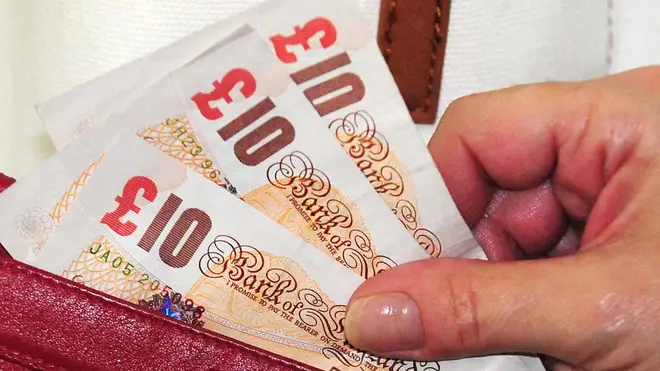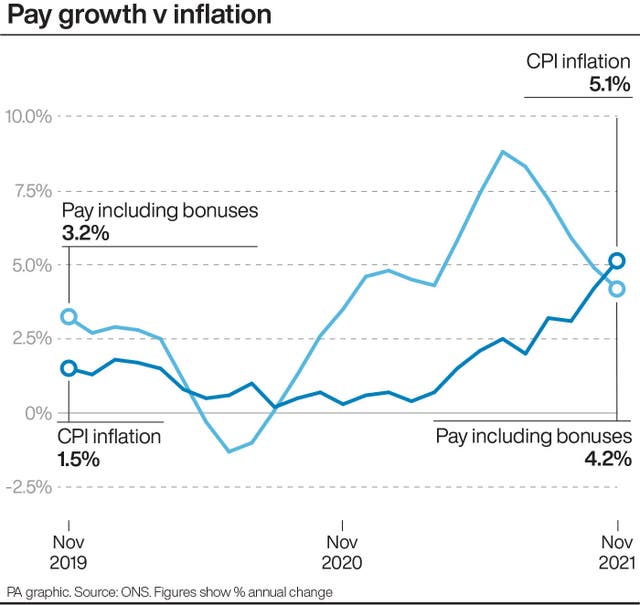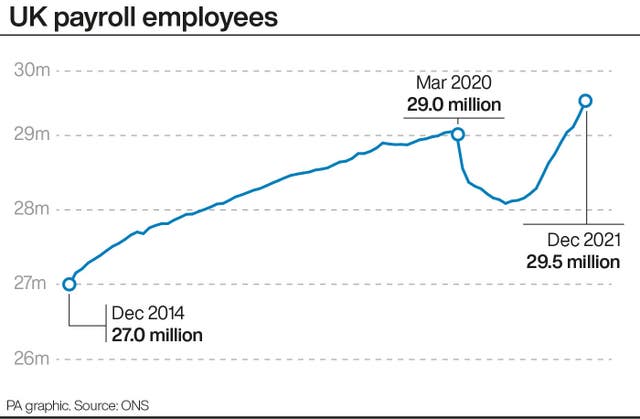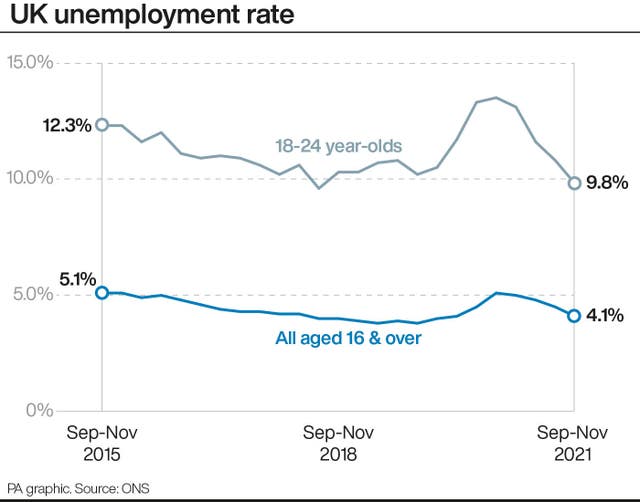
Ali Miraj 12pm - 3pm
18 January 2022, 11:44

The Office for National Statistics said average weekly pay after inflation, excluding bonuses, fell 1% year-on-year in November.
Britons have seen rises in their pay packets lag behind soaring inflation for the first time in more than a year as the squeeze on UK households tightens.
Figures from the Office for National Statistics (ONS) revealed that average wage growth, including bonuses, rose by 4.2% in the three months to November.
But with inflation hitting an eye-watering 5.1% in November, this means that real wages failed to keep up with the rising cost of living for the first time since July 2020.

It comes as sky-high energy bill increases are adding to rising costs across the board and intensifies the pressure on the Government and the Bank of England to help ease the UK’s mounting cost-of-living crisis.
Official data on Wednesday is expected to show inflation edging higher still in December, to 5.2%, with experts warning falls in real wages will only get worse as the Consumer Prices Index is set to hit 6% by April.
The latest figures from the ONS also showed there was no sign of a jobs hit from the Omicron variant of coronavirus sweeping the UK, with a record rise in payrolled workers.
The number of workers on UK payrolls jumped by 184,000 month on month, or 0.6%, in December to 29.5 million.
The ONS said the number of people employed is now 1.4%, or 409,000, above levels seen before Covid.

Unemployment fell 128,000 to 1.38 million quarter-on-quarter in the three months to November, while employment lifted 60,000 to 32.5 million, the ONS said.
Chancellor Rishi Sunak said the figures were “proof that the jobs market is thriving”.
But the data laid bare the toll of recent soaring prices on household finances, with average weekly pay after inflation, excluding bonuses, falling 1% year-on-year in November and total pay down 0.9%.
Martin Beck, chief economic adviser to the EY Item Club, said the fall in real wages was an “unwelcome development which is likely to worsen over the next few months”.
Some economists believe the Bank will hike interest rates again as soon as early next month to rein in rampant inflation, hot on the heels of its December rise from 0.1% to 0.25%.
Headline indicators for the UK labour market for September to November 2021 show that
▪️employment was 75.5% ▪️unemployment was 4.1% ▪️economic inactivity was 21.3% https://t.co/2gkvghJI5s pic.twitter.com/QDL80XnR5h
— Office for National Statistics (ONS) (@ONS) January 18, 2022
James Smith, an economist at ING, said: “At face value, the UK jobs market looks much like it did pre-pandemic.
“Taken with rising headline inflation, that makes a February rate hike look more likely.”
He is pencilling in two increases overall in 2022.

The buoyant jobs data has given the Bank further room to act, showing strength in the face of Omicron and the end of furlough last September, with the ONS revealing the redundancy rate fell to a record low in the three months to November.
The number of vacancies also surged to a fresh high of 1.25 million in the quarter to December – 128,000 more than the previous three months and 462,000 above the pre-Covid level as firms battled to secure workers.
The figures suggested staff shortages may finally be easing, however, with a slowdown in vacancies growth, falling from more than 180,000 in the previous three months.